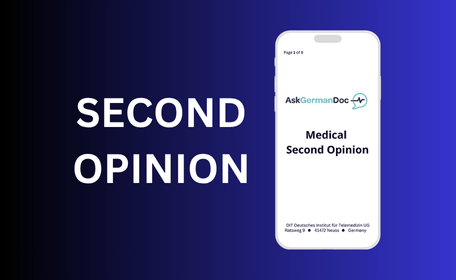Surgical interventions are often life-saving or function-restoring. However, when an operation is unnecessary or incorrectly performed, the consequences can be severe — both physically and psychologically. Inappropriate surgeries may stem from misdiagnosis, lack of comprehensive diagnostics, outdated methods, or poor planning. To protect their health, patients should always seek clear explanations, question the necessity of any invasive procedure, and, when in doubt, request a second opinion.
What Happens After an Unnecessary or Failed Surgery?
In cases of cosmetic surgeries — such as rhinoplasty or breast augmentation — mistakes are sometimes reversible, though usually at a high cost. For instance, a poorly performed nose job may require a corrective procedure, while improperly sized breast implants may necessitate replacement.
But with more serious operations, such as those involving internal organs, the spine, or the cardiovascular system, the outcomes can be irreversible. These may include:
-
Chronic pain
-
Impaired organ function
-
Life-threatening complications
Beyond physical damage, many patients suffer emotionally from botched or unnecessary surgeries. Feelings of shame, anxiety, or depression are common, especially when the outcome affects their appearance, bodily function, or daily quality of life. In some cases, patients require long-term psychotherapy to rebuild their confidence and mental health.
The financial toll is also significant. Repeat surgeries, prolonged rehabilitation, and ongoing consultations can exhaust a family’s resources. Patients may miss work or lose jobs altogether, affecting both their livelihood and independence.
Additionally, social stigma and misunderstanding from others can lead to isolation. This makes comprehensive post-operative care — including emotional and psychological support — just as vital as physical recovery.
Not sure about your diagnosis?
A medical second opinion from leading German doctors can provide clarity and confidence.
Request a Second OpinionCommon Types of Surgical Errors
Mistakes in surgery can be grouped into several categories:
Diagnostic Errors: Surgeries may be performed based on incorrect or incomplete diagnoses. Skipping essential tests or failing to consult specialists can result in inappropriate treatment plans.
Technical Errors: These include procedural mistakes such as damage to surrounding tissues, failure to follow best practices, or use of outdated techniques.
Planning and Assessment: Errors Poor preparation often leads to preventable complications. Examples include: - Choosing the wrong surgical method - Overlooking patient-specific contraindications - Failing to inform patients of potential risks or alternatives
How to Reduce Surgical Risks
Patients can take active steps to minimize the likelihood of a harmful outcome:
-
Understand the necessity of surgery — Ask whether conservative treatment options might be equally effective.
-
Research potential risks and alternatives — Explore both surgical and non-surgical methods.
-
Verify your surgeon’s qualifications — Experience in the specific procedure matters.
In difficult or uncertain cases, obtaining a second medical opinion can help avoid unnecessary surgeries or uncover safer, more modern treatment options.
Legal and Ethical Responsibilities of Surgeons
Surgeons are bound by both professional ethics and legal obligations. If harm results from negligence, patients may be entitled to compensation. Key responsibilities include:
-
Informed Consent. Doctors must fully explain: - All potential risks and complications - Possible alternatives, including non-surgical options
-
Adherence to Medical Standards. Surgeons must: - Follow evidence-based international and national protocols - Use modern, scientifically validated methods
-
Post-Operative Monitoring. Surgeons should: - Monitor patients after surgery - Provide appropriate rehabilitation and recovery support
If a surgical error occurs, patients have the right to file complaints with medical boards or seek legal redress.
Why Asking the Right Questions Is Crucial
Modern medicine emphasizes shared decision-making between doctors and patients. Individuals should feel confident and fully informed before consenting to any surgery.
Here are five essential questions patients should ask:
-
Is the operation absolutely necessary?
-
What are the specific risks and expected outcomes?
-
Are there alternative treatments?
-
How experienced is the surgeon in this procedure?
-
What happens if I choose not to undergo the surgery?
Educating patients about surgical risks and alternatives leads to better outcomes and reduces the number of preventable errors. When patients are informed, they can make safer decisions — and advocate for their own well-being more effectively.
What to Do After a Botched Surgery
If you have already undergone surgery and suspect complications or poor outcomes, take the following steps:
-
Seek new diagnostics — Assess the extent of the damage and current condition.
-
Get a second opinion — An independent expert can help determine your options.
-
Explore corrective procedures — This may include revision surgery or conservative therapy.
-
Consider legal advice — If medical negligence is evident, legal compensation may be appropriate.
-
Don’t overlook mental health — Counseling or support groups can help you recover emotionally.
Recovery is a holistic process, involving both body and mind. Emotional healing is just as essential as physical rehabilitation.
The Value of a Second Medical Opinion
A second opinion can help you:
-
Confirm or challenge the diagnosis
-
Discover safer, more effective alternatives
-
Avoid unnecessary or high-risk interventions
Platforms like AskGermanDoc connect you with leading German doctors who analyze your case independently and provide evidence-based treatment recommendations.
Conclusion
A wrongly performed or unnecessary surgery can cause long-lasting damage to your health, career, finances, and emotional well-being. But by asking the right questions, choosing your doctor carefully, and seeking a second opinion when needed, many of these outcomes can be avoided.
Sources:
- World Health Organization (WHO) – *Global Guidelines for Safe Surgery* (2023) – www.who.int
- European Commission – *Patient Safety and Quality of Care Report* (2024) – health.ec.europa.eu
- Federal Ministry of Health (Bundesministerium für Gesundheit, Germany) – www.bundesgesundheitsministerium.de
- German Medical Association (Bundesärztekammer) – *Guidelines on Patient Safety and Surgical Quality* (2024) – www.bundesaerztekammer.de
- Organisation for Economic Co-operation and Development (OECD) – *Improving Patient Safety and Reducing Medical Errors* (2023) – www.oecd.org
- German Society for Surgery (Deutsche Gesellschaft für Chirurgie, DGCH) – www.dgch.de
- National Institute for Health and Care Excellence (NICE, UK) – *Surgical Safety Standards and Patient Consent Guidelines* (2024) – www.nice.org.uk
- Harvard Medical Practice Study – *Incidence of Adverse Surgical Events and Malpractice Prevention* (2023)
- AskGermanDoc verified expert reviews and second medical opinion data (2024–2025)
Disclaimer: The information provided in this article is for general educational and informational purposes only and does not constitute medical advice. It should not be used as a substitute for professional diagnosis, treatment, or medical consultation. Always seek the advice of qualified healthcare professionals regarding any medical condition or treatment. AskGermanDoc does not promote or advertise specific medical services, physicians, or therapies.



